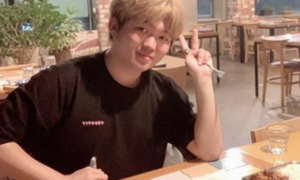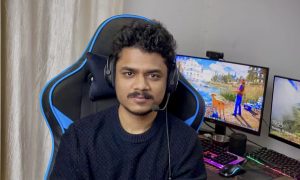Because the distinction between so-called games of skill and games of chance is prone to misuse and litigation due to the overlap between the two categories, the government may consider one single tax rate for online gaming as two different rates of 18 percent and 28 percent, according to two people familiar with government thinking.
The GST Council, the ultimate decision-making body on indirect tax affairs, will make a final judgement on this, they stated on condition of anonymity. The council, which is a federal organisation, is chaired by the Union finance minister and includes state finance ministers as members.
On May 24, the GST Council established a group of ministers (GoM) to handle taxes issues in the online gambling sector. Initially, it consisted of a seven-member ministerial body chaired by Gujarat. On June 11, Telangana’s finance minister was added to the group as the eighth member.
“Next month, the GoM is expected to present its report to the council.” One of the people said, “The council may discuss all issues related to online gaming and take a thoughtful position.” The GoM will decide whether GST should be applied only to the money retained by the platform or to the prize money as well.
According to the second participant, determining whether a game is fully skill-based or purely random is often challenging. “For example, rummy is a skill game, but card distribution is entirely random. Second, unlike physical casinos, where a player’s age can be easily verified, online gaming platforms have no effective way of preventing children as young as 13 from participating, which could be harmful to society. As a result, internet gambling should be classified as a lottery, a sin product, and should be taxed at a rate of 28%.”
“There is no objectively definable test, regulatory guideline, or administrative forum to assess and determine whether a game will be characterised as a game of skill or game of chance,” according to a Niti Aayog discussion paper, citing a report by the Sports Law and Policy Centre, a Bengaluru-based think tank that focuses on sports law and policy.
As per the two people, a single tax rate on online gambling would be preferable to avoid lawsuits. The GST Council imposed a 28 percent standard GST on both state-run and state-authorized lotteries in December 2019. Previously, state-run lotteries were subject to a 12.5% GST, while state-authorized lotteries were subject to a 28.5% tax. The lottery sector had been lobbying for a 12-percent GST rate to be implemented across the board.
“As these are games of skill, not chance,” said Abhishek A Rastogi, partner at law firm Khaitan & Co., “the higher rate of 28 percent tax on this entertainment space will undoubtedly be subject to judicial review.” “An equally important issue is service valuation: whether tax is levied on the total worth of each player’s contribution, or on the margin or revenue of the online platform.”
The second individual explained, “The Council can always alter the legislation to avoid various interpretations and judicial challenges.” Rastogi, on the other hand, believes the government should take a “pragmatic approach,” since otherwise, players will be forced to “participate on foreign internet platforms,” which will be harmful to all stakeholders.
According to Roland Landers, CEO of the All India Gaming Federation (AIGF), the government should keep the current GSt of 18 percent. He asserted that online games are based on skill and should not be equated with games of chance, citing four Supreme Court precedents.
MPL, Paytm First Games, Gameskraft Group, Baazi Games, and Adda 52 are just a few of the AIGF’s members.
“Certain high courts have plainly held various online games like Online Rummy, Fantasy Sports (e.g. Dream 11) and other online games as games of skill and distinguished them from games of chance,” said Bipin Sapra, partner, tax and regulatory services, indirect tax at consultancy firm EY. “Like any other e-commerce site, the online gaming platform links numerous people who play the game. The platform fee is the only taxable value because it is in lieu of the service supplied.”
“This is in keeping with global best practises where tax rates have been shown to range from 6 percent to 21 percent,” Landers argued in support of an 18 percent GST. Even within the Indian online gambling community, if prices are raised above this threshold, both operators and players are more likely to turn to black market operations.”
“Games of skill need players to invest a lot of time and effort in training and polishing their skills, much like any regularly played sport,” AIGF president, policy and planning Sutanu Behuria said of the distinction between games of chance and games of skill. When skill clearly overcomes chance in determining the outcome of a game, it is classified as a game of skill.”
Rummy, Poker, Bridge, Fantasy Sports, and E-sports are deemed games of skill, according to the gaming acts of various states, given that gaming is a state-run issue, he stated. Behuria was previously employed as a government official.




























